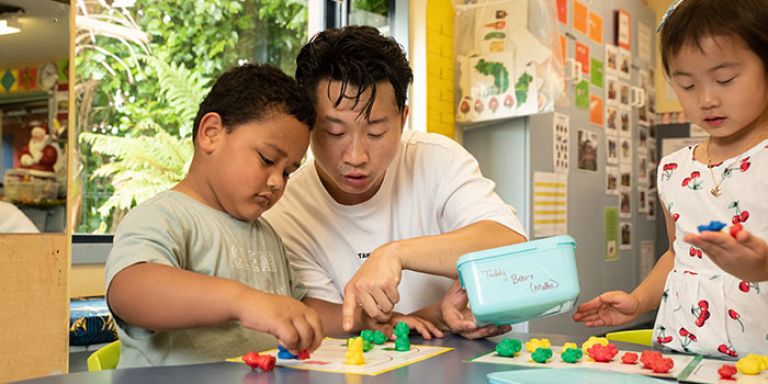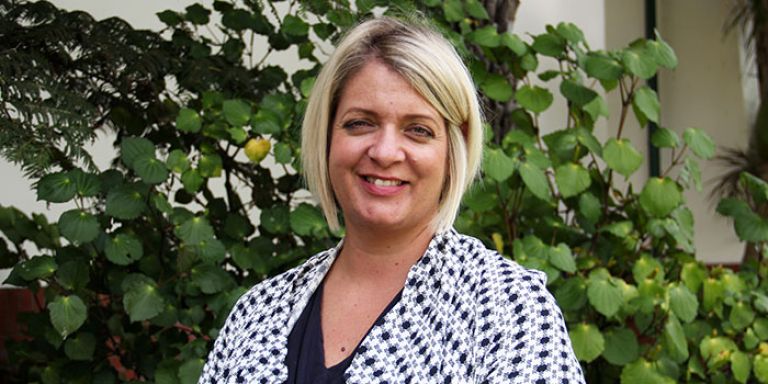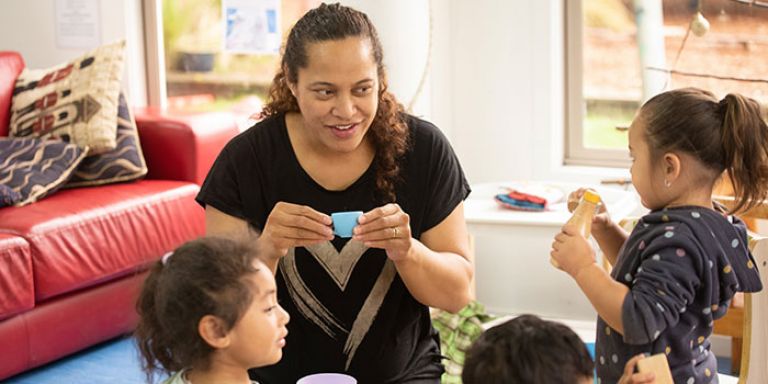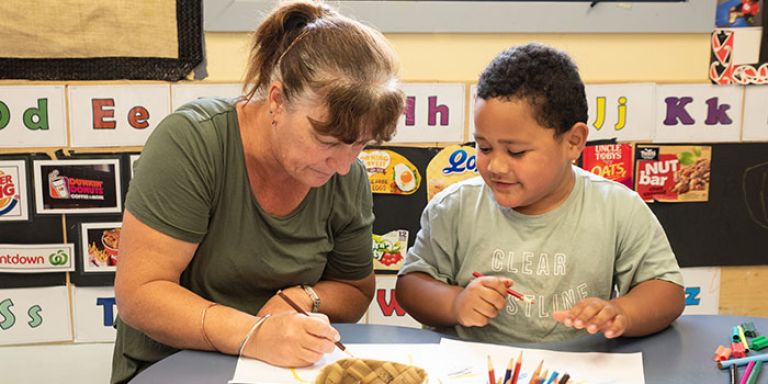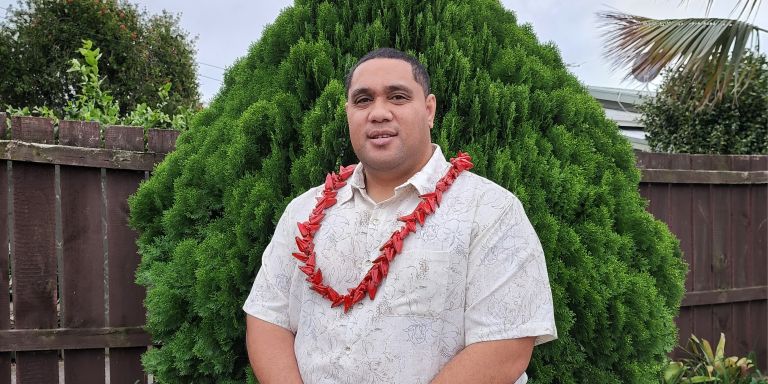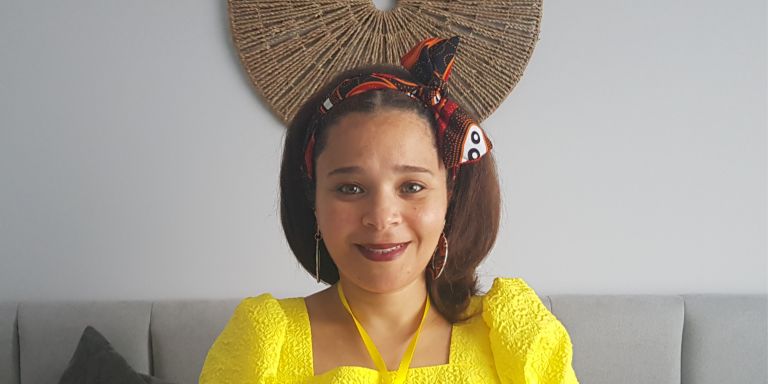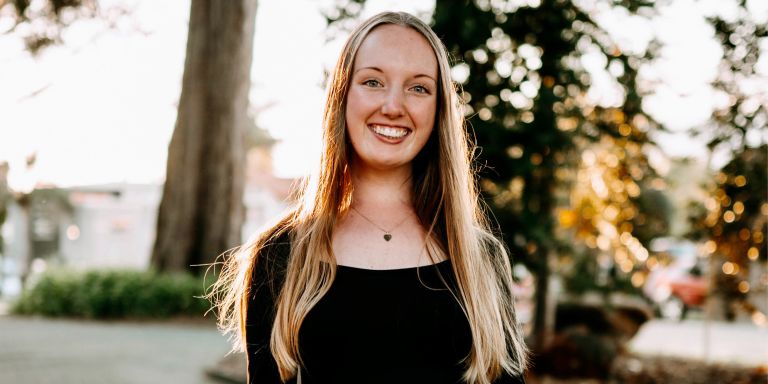Programme highlights
Get the skills and knowledge necessary for becoming a proficient educator.
On completion of this programme you will be able to provide and support the education and care of infants, toddlers, and young children in a range of early childhood contexts.
Students learn about early childhood education and curriculum in Aotearoa, human development and learning, Te Tiriti o Waitangi and Te Ao Māori, belonging and well-being and professional relationships.
Spend up to three days a week learning with a blend of classroom and online experiences and activities. You will also spend two days per week (12 hours) in an early childhood centre where you will apply classroom theory to practical scenarios.
In Semester 1 you will spend one week full time (35 hours) in your home centre. In Semester 2 you will also experience a three-week full-time (105 hours) placement in another early childhood setting. This placement will be organised by the School of Education Practicum co-ordinator. Get real experience working in an early childhood setting with four weeks of full-time placement.
On successful completion of the diploma programme, you will be eligible under specified criteria, to pathway into the second year of the Bachelor of Education (Early Childhood Teaching) (Level 7).
This programme has been developed to align with the first year of our Bachelor of Education (ECT) Degree. This programme does not lead to teacher registration, but it may provide opportunities for graduates, under specified criteria, to pathway into the second year of the degree. Students wanting to pathway to our Level 7 ECE initial teacher education qualification will need to; successfully complete this programme and meet all other entry criteria of the degree, including being interviewed and supplying new referee reports, and those who are EAL achieving Academic IELTS 7 in all bands.
Entry requirements
Academic admission requirements
Applicants under 20 years of age: NCEA level 2 or equivalent
Entry over 20 years of age: Applicants who are 20 years of age at the commencement of the programme and have relevant life and/or work experience do not have to meet the minimum academic requirements (with the exception of English Language criteria).
Safety checks
To satisfy the risk assessment and safety check required in compliance with the Vulnerable Children Act (2014) the following requirements are in place:
- Provide a New Zealand Police Check (using the NZ Police and Vetting Consent to Disclosure of Information form) that demonstrates that the applicant has no criminal record and thus meets the requirements to work with at-risk and vulnerable children as required by the Vulnerable Children Act (2014)
- Interviews will be conducted in person. Skype or other electronic means as outlined in the Vulnerable Children Act (2014) will be used where distance is an issue
- Sign a statement agreeing to the release of pertinent information relevant to the Vulnerable Children Act 2014 that a Childcare centre may request
- Provide two satisfactory written referee reports
- Provide one photograph that meets the criteria defined by the New Zealand passport office
English language entry requirements
Applicants must demonstrate that they have sufficient competence in English language and literacy to undertake this programme.
- Applicants for whom English is not their first language (including International students) must demonstrate that they meet an IELTS (International English Language Testing System) Academic version minimum score of 5.5 with nothing lower than 5.0 in all components.
- International students must further meet the English language requirements as specified by NZQA
Exempted case: EAL applicants who have completed the New Zealand Certificate in English Language (Professional/Academic) (Level 5) or achieved 10 literacy credits (5 reading and 5 writing) from the New Zealand Certificate in English Language (Academic) (Level 4).
Applicants who do not meet the IELTS requirement are able to re-apply for future intakes to the programme once this English language requirement has been met.
Give yourself credit with Recognition of Prior Learning (RPL)
Did you know you can use the knowledge and experience you already have to your advantage?
Your previous work experience and on-the-job skills, volunteering, professional development, and other providers’ qualifications can be recognised as prior learning, matched against credits in our courses, and put towards your qualification – potentially saving you money and possibly helping you to complete your qualification faster Learn more.
Programme structure
You will need to complete the below five courses (120 credits):
Do you want to study a single course, without enrolling into the full programme?
Courses within some of our programmes may be offered as an individual Certificate of Proficiency (COP). Programme entry requirements and course fees apply. For more information, please speak to our friendly Ask Me! team.
Further training or study
Bachelor of Education (Early Childhood Teaching) (Level 7)
Career opportunities
Graduates of this qualification will have the skills and knowledge to work in a range of early childhood contexts, such as centre-based, hospital-based (play specialist assistant), home-based, nanny, parent-led, or culturally-based contexts including Pasifika or Māori. Graduates may provide supervision or guidance of volunteers or other staff, in some early childhood settings. They may also be involved in voluntary roles in early childhood settings. For potential salaries visit careers.govt.nz.
*This programme does not lead to New Zealand Teacher Certification, to gain this you must have a level 7 teaching qualification.






